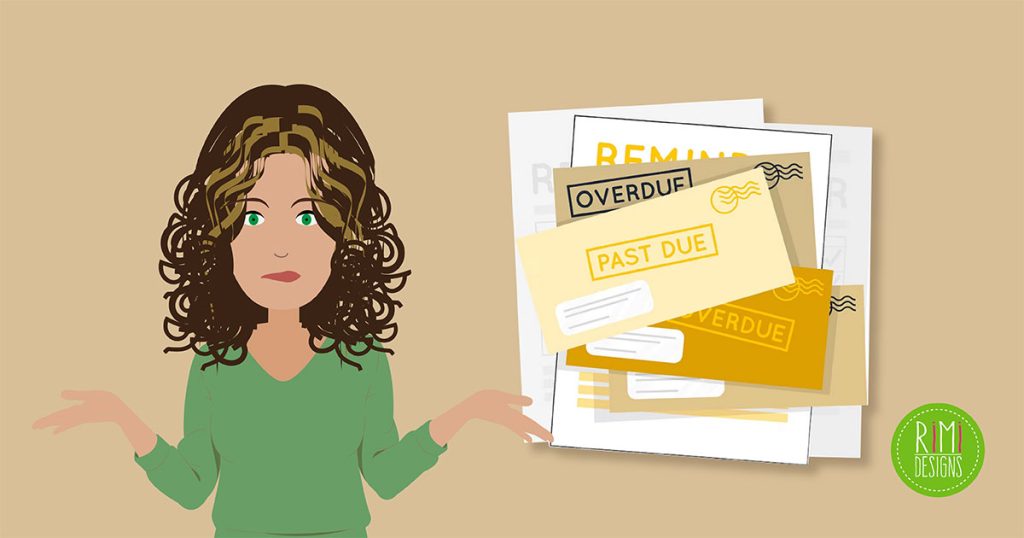
10 Rules to Live by When a Client Doesn’t Pay
The gig-to-gig nature of freelance life can be hard on bank accounts. Drastic fluctuations in income makes budgeting nearly impossible. But you know what makes this balancing act even harder? Clients who don’t pay. It’s almost beyond belief that something as simple as getting paid could be such a pervasive issue. Unfortunately, that’s the reality.
So how do we make sure that no gigs go unpaid? Of course there are legal means for receiving payment, but it’s much better to ensure from the beginning that you’ll be compensated for your efforts.
Here’s how to make sure that your client pays those bills.
1. Know who you’re dealing with
Before you apply for a gig, do a little background research on the client. Hopefully you find glowing reviews written by fully paid freelancers, all living happily ever after.
If this doesn’t happen and all you find are horror stories, at least you’ll know that you’re better off without that gig.
2. Don’t commit to a gig without having a written contract first
Freelance gigs can come from a number of different places. Whether you’re dealing with a corporate client or a personal friend, it’s important that you draw up a contract. Even friends should understand that this is your business and should therefore be taken seriously.
3. Make sure to cover all of your bases
Expecting the worst can be an asset. If your client ends up being a dud, your contract is going to be all that you have to lean on.
One strategy is to include payment terms that span the length of the gig. Some people require a deposit up front, at the halfway point or at another agreed-upon point in the lifetime of the project. Be assertive about what you expect and when.
Another potential lifesaver is to include a late fee, possibly a percentage of the total amount. If your client knows that they’ll end up having to pay more by taking their time with paying you, it might give them a little motivation to pay up.
4. Don’t be afraid to negotiate terms
Your contract should specifically outline your expectations and requirements for the gig.
However, sometimes you’re going to have to be flexible. Maybe their policy for payment is 90 days. Maybe yours is 30. Chances are you can get them to agree to 60. It’s your contract and your project, so be sure to set deadlines that work for you.
5. Be sure to make one friend in the accounting department
You want to remain in good standing with your client but you know that repeatedly asking your primary work contact for money might not leave the best impression.
Make sure that you’ve got payroll’s number. If a payment is late, reach out to them before taking any further measures.
6. Grind it to a halt
What happens if you don’t pay your cable bill? It goes out, right? Well, depending on your situation, it might be appropriate to grind your own work to a halt if pay is not being received.
Let’s say you’ve agreed that a percentage of your pay be received by a certain date. If it hasn’t, be sensitive but firm. Let your client know that you haven’t stopped working, but that nothing will be delivered until the payment is received. This should get them moving.
7. Have your invoices show them that you mean business
As soon as your work is done, make sure there’s an invoice coming at them from all directions. Send each invoice by snail mail, email and with a phone message saying the invoice was sent. Not only will this show them that you’re not messing around, it will diminish the possibility of your invoice slipping through the cracks.
8. Don’t forget to follow up
If your invoice hasn’t been paid by the agreed-upon deadline, don’t hesitate to send an email. Keep it friendly but firm.
If there’s no response from there, don’t be afraid to change your tone. No matter how frustrated you might be, it’s important to keep your tone professional and laser-focused on finding a solution to the issue, as soon as possible.
9. Don’t just give up, get active
It’s no fun to have to involve third parties in your business but if you’re not getting paid, it might be your best bet.
After following up on your own, there are a few things that can be done before resorting to small claims court.
- Have an attorney send your client a letter.
- Hire a collection agency to make calls and send letters. Collection agencies will generally pay you 50% of what they collect.
- Offer a discounted payment as a one-time-only offer. Write it, put a strict deadline on it and be extra clear with them that this offer is only happening once. If they accept, be sure to formalise the deal with a legal agreement called a mutual release and settlement.
10. Resolve your issue in small claims court but don’t lose more than you’re owed
Small claims court is a venue for resolving generally small disputes over money and other issues. Usually it’s not costly, but before beginning the process be sure that the money spent makes sense for what you’re looking to recover.
The specifics of whether you can represent yourself, how much you can recover, and how long you have to bring a lawsuit will depend on your location. Remember to research the small claims court policies in your state and be sure to look for official government websites.
SOURCE: Freelancers Union



